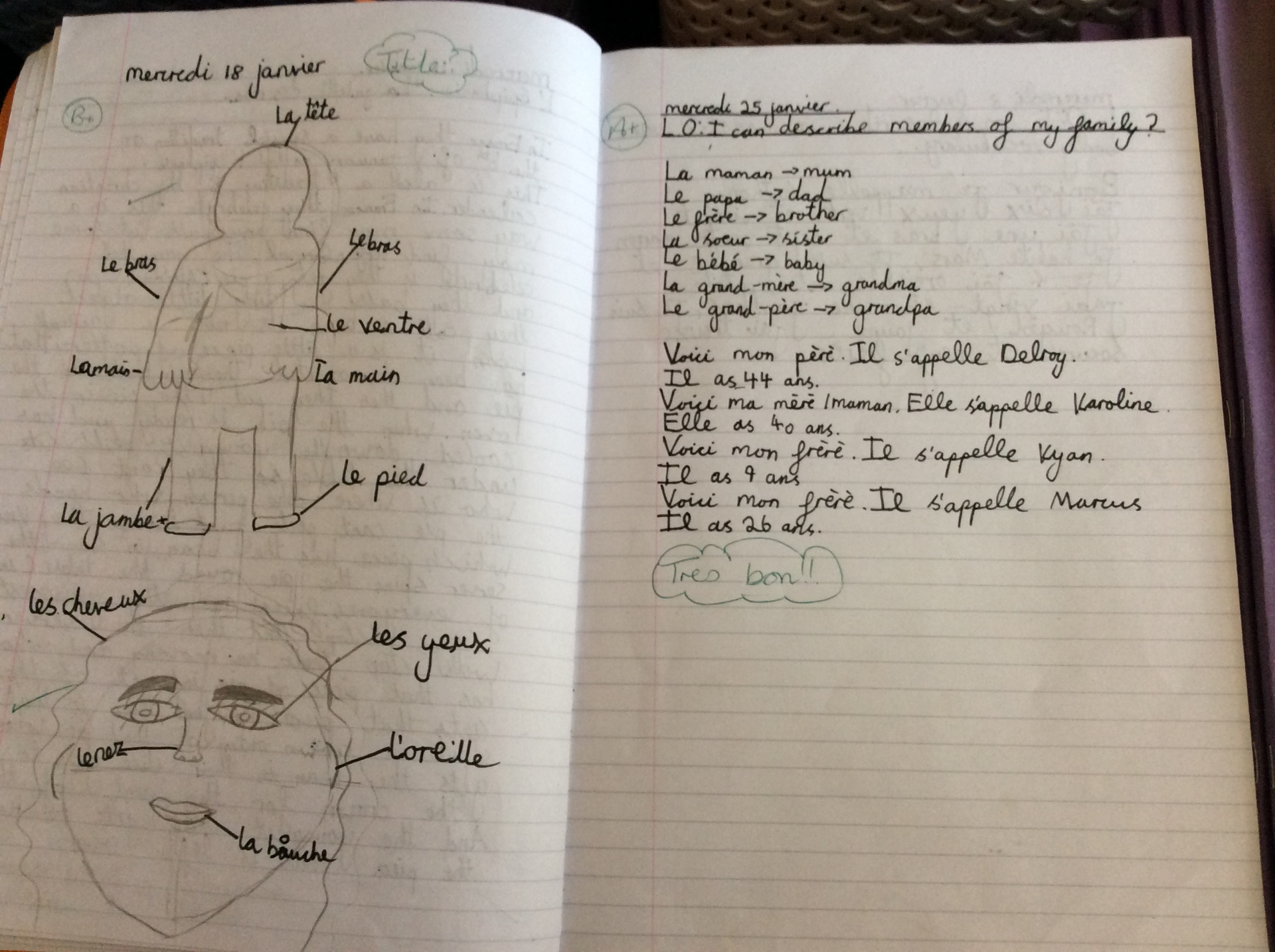Modern Foreign Languages (French)
"French makes my happy" Year 3
"I know that a language can be useful in my future" Year 4
"I love learning French because I might go there and speak it one day" Year 5
Intent
At Scissett CE Academy we have chosen to teach French as our Foreign Modern Language using the “Primary Language Network” scheme. We have ensured that French is a priority at Scissett CE Academy by creating a timetable that allows it to be taught weekly to each Key Stage two cohort. We aim to provide a high-quality language education that fosters pupil’s curiosity and deepens their understanding of the world. When studying French, the children are given the opening to understand other cultures. MFL starts in Key Stage two where children will begin to develop their core basic vocabulary. As children progress through the key stage they will be given ample opportunity to communicate for practical purposes, express their ideas and thoughts, as well as being able to listen to, understand and to have a simple conversation in French.
Implementation
Throughout the teaching of language, we aim for all children to develop an appreciation for the French language. Through well taught, exciting lessons we hope that children will gain an understanding of the language, thus allowing them to speak with confidence, fluency and spontaneity.
At Scissett CE Academy the KS2 children will be taught following the ‘Primary Language Network’ scheme. This scheme allows us to cover the essential areas of learning as mapped out by the National Curriculum and allows clear progression for the development of speaking, listening, reading, writing and grammatical knowledge within French. Whilst we use the scheme as a starting point for teaching we have made adaptations to fit the context of our school.
We use a variety of the following techniques to encourage children to have an active engagement with French:
- Games – in order to develop vocabulary through repetition, reading, writing, speaking and listening skills.
- Role-play – these should relate to the situations the children may find themselves in the future.
- Action songs and rhymes – to develop phonetic skills, memory skills and to further vocabulary.
- Reading and writing quality materials.
- Computer programs and websites; the use of computer to develop communication skills.
- We build children’s confidence through praise for any contribution they make in the foreign language, however tentative.
These are the topics which will be covered
Year 3
|
Autumn
|
Getting to know you Numbers and colours Days of the week |
|
Spring
|
Animals Games |
|
Summer
|
Fruit and vegetables Going on a picnic |
Year 4 and 5
|
Autumn
|
Welcome to our school Days and months Revise numbers |
|
Spring
|
Families and faces Parts of the body |
|
Summer
|
Feelings and descriptions The weather |
Impact
As pupils progress through Scissett CE Academy they will develop their linguistic knowledge and understanding in different key areas. We aim to develop skills in the following areas:
- Speaking
- Listening
- Reading
- Writing
- Grammar
- Phonetic Understanding
Children will be given an opportunity to consolidate their skills and develop them further throughout each unit. They will show evidence of clear progression and this will allow them to be fully prepared for their transition to their next school.
Learning an additional language will offer pupils the opportunity to explore relationships between language and identity, develop a deeper understanding of other cultures and the world around them with a better awareness of self, others and cultural differences. It is hoped that children will foster a love of language and a desire to further learning beyond the classroom and in their future.
Assessment and Key Skills Criteria
What Learning Looks Like







French Jungle Animals - May 2025
In French Year 4 have enjoyed learning a story about jungle animals. The children have learnt how to join in with the story and are becoming confident in speaking in French when reading the story. This week to support their storytelling in French we have done role playing where the children narrated the story. The children took it in turns to be a jungle animal or an explorer. This will support the children in getting ready to write their own story in French about jungle animals.







